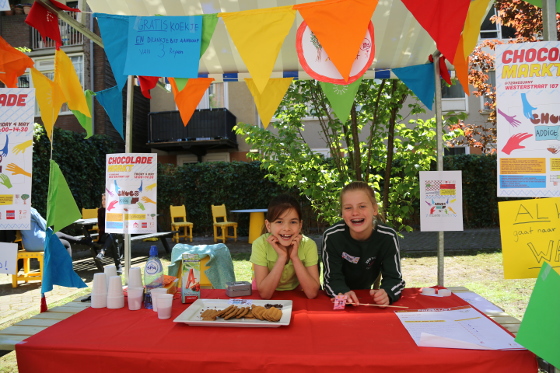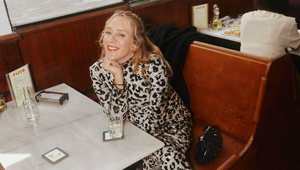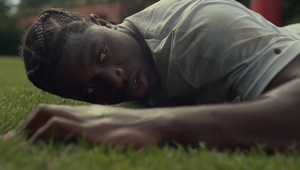
Meet the Future’s Sustainable Chocolate Entrepreneurs
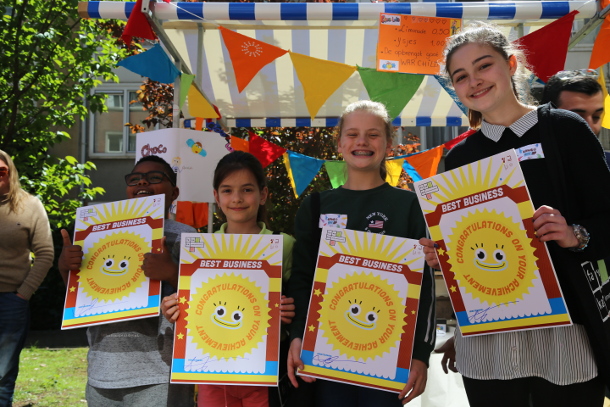
Last week 72andSunny Amsterdam’s creative residency programme, 72U, partnered with Tony’s Chocolonely to create a special edition of Fawaka’s Choco Bizz Kids scheme. The unique experience aims to educate the youth on sustainable entrepreneurship, and how they can contribute to a better world by setting up a socially-minded business.
Working with Dynamo Talententent to reach kids and families that normally would not get access to programs like Choco Bizz Kids, the programme invited children aged 8 to 12 to experience the different phases of building a sustainable business: from product manufacture, chocolate, health and sustainable entrepreneurship to idea inception, designing a logo, pitching to a bank and then bringing their product to market.
Taking place over a period of five days, the workshop began on April 30th, with all sessions being held at the 72andSunny Amsterdam office. The week culminated on May 4th at the specially-created Heerlijke Eerlijke Chocolade Markt (Delicious Fairtrade Chocolate Market), where family, friends and neighbours came to taste and buy the various chocolate bars created by the kids. The winning team will get their concept and design idea executed as limited edition customised Tony’s bars to share with their family and friends. All earnings from the market will be donated to a charity that will be chosen by the kids.
LBB’s Alex Reeves asked young chocolate industry entrepreneurs Josh J Funnell (8 years old), Darija Geidane (11 years old) and Marina Lazet (9 years old) to reflect on their experiences on the Choco Bizz Kids programme.
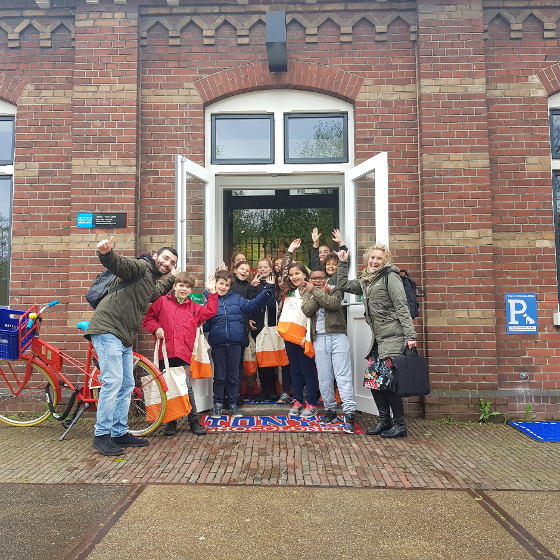
LBB> What was your favourite thing about Choco Bizz Kids? What did you learn?
Josh> Making chocolate and the Chocolate Market.
It was really nice to work as a team and to create a company and that we had to buy things and make decisions with our own companies, like it was almost real.
I do not work a lot in teams in my school, so it was nice to work in a team and have to make decisions together. I learned a lot from that.
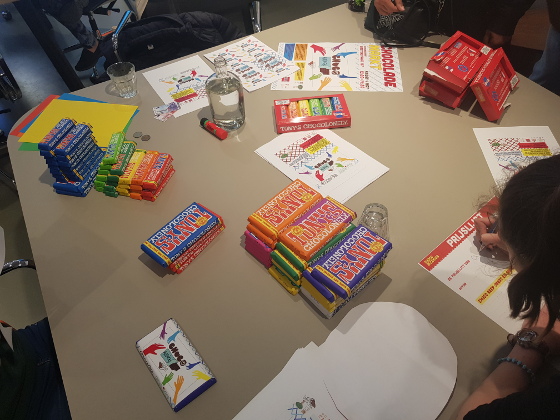
Marina> We learned a lot about Fairtrade and that the farmers do not get paid fairly, but they do most of the work… That is not right.
At the visit at Tony’s we learned a lot about how chocolate gets made and how Tony’s does it with their production and farmers. That was very nice.
We also learned that there are a lot of different flavours and we created them as well ourselves in the chocolab.
We learned how to make the wrapper and the packaging.
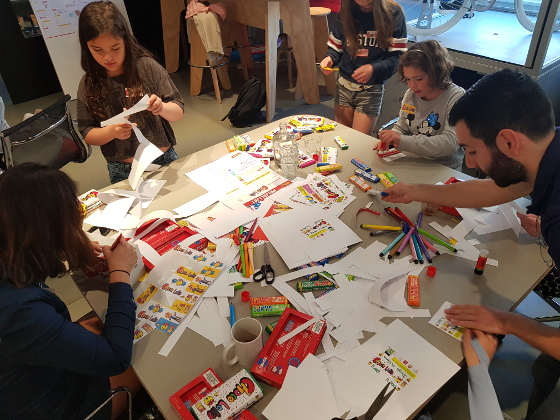
LBB> How did you design the packaging? What was your inspiration?
Darija> We first had the name Choco Gogo, but we liked Choco Loko more, because we are all crazy and we decided to draw all crazy puppets and characters.
Marina> When I started drawing, Athena, my team member, suggested drawing a lot of chocolate. Kyano wanted to have a bite out of the bar and team member Kaat suggested to have all hands wanting to taste and take the bar. So I tried to draw all these suggestions.
Josh> With ChocoBloks, we talked a lot about pieces of chocolate and then we started drawing blocks and lastly we added color. The wrapper was made inspired on the logo we created.
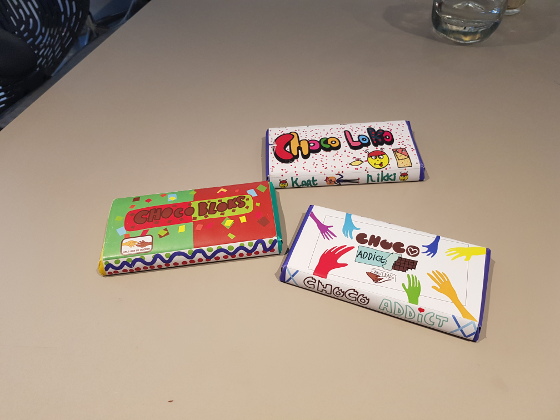
LBB> Grown-ups are usually in charge of creating chocolate. Do you think they've been doing a good job? What could they be doing best?
Darija> I think they could do a lot better, if you think about the kids that are working in making chocolate. I think that kids do not have to work to make chocolate, but [they should] enjoy [themselves] and play more.
Marina> If we divide the chain better then everything should be more fair. The grown-ups do not divide it very fairly at this moment, just a few companies have.
Josh> If it is Tony’s yes, but the other big brands that do not really do fair trade. Our companies did it a lot better - we give a fair amount of money to the farmers.
